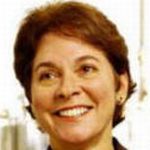Belita Koiller

Belita Koiller
Competition: Latin America & Caribbean
Pontificia Universidade Católica do Rio de Janeirio
After receiving her Ph.D. in physics from the University of California, Berkeley, in 1975, where she conducted her research under the supervision of Leo Falicov, Belita Koiller returned to Brazil, beginning her professional career as an assistant professor in the Physics Department of her alma mater, the Pontificia Universidade Católica do Rio de Janeiro (PUC/RJ). Two years later her son, José Koiller, was born. In 1980 she was promoted to associate professor, and in 1992, to full professor. While there, she was the departmental chair in 1983-84 and graduate programs coordinator for the Technical and Scientific Center from 1986 to 1990. She left PUC/RJ in 1994 to become professor at the Physics Institute at the Universidade Federal do Rio de Janeiro (UFRJ), where she remains to the present day. She has published over 100 scientific papers with several collaborators in Brazil and abroad. At both PUC/RJ and UFRJ her responsibilities included teaching, research, academic supervision of students and post-docs, administration, and scientific-community support activities.
Ms. Koiller was a member of the Physics and Astronomy Scientific Committee for the National Research Council (CNPq) in 1986-87, was twice elected to the Council of the Brazilian Physical Society (1993-97, 1999-2003), and was a member of the Committee on Capacity Building in Science of the International Council of Scientific Unions (ICSU) from 1994 to 1996. In addition, she is the Coordinator for Physics and Astronomy at the Carlos Chagas Foundation of Research Support (FAPERJ) since 1999. She has visited several scientific institutions abroad, promoted visits at local institutions by distinguished international scientists, and has participated in and organized several national and internationl scientific events.
Belita Koiller maintains an active research collaboration with national and international research groups.